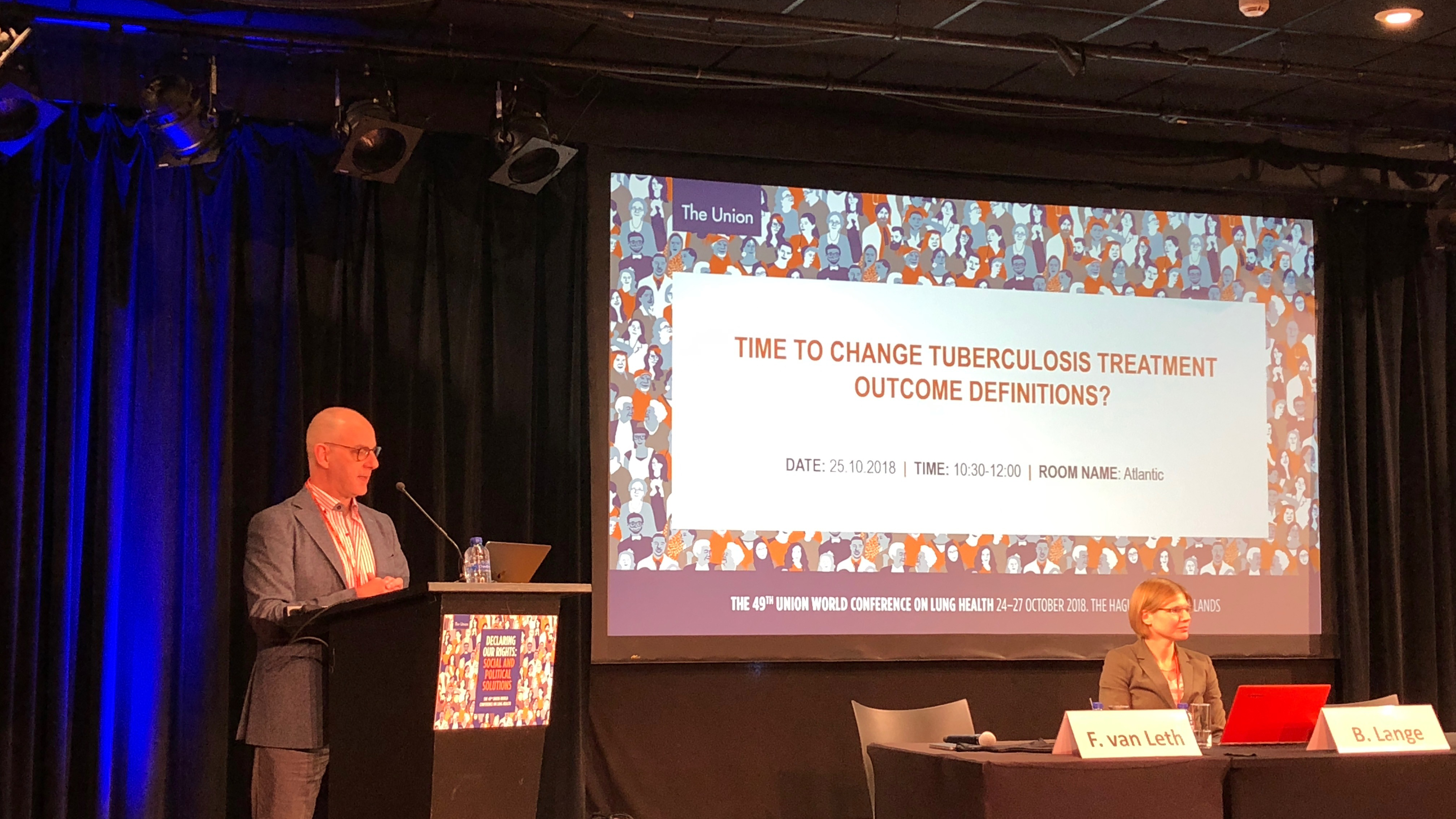
08 Jan Taking on tuberculosis through education and research
Members of TBnet are starting 2019 full-steam ahead.
The 650-member European network organization published an editorial in the European Respiratory Journal outlining ambitious goals to improve care and treatment for people with tuberculosis (TB). TB is the ninth leading cause of death worldwide and the leading cause from a single infectious agent, ranking above HIV, according to the World Health Organization.
The paper highlights past accomplishments and the network’s three-year action plan, which includes updating consensus statements to ultimately provide guidance to care providers on the use of newly available drugs and diagnostic tools for multi-drug resistant TB. They also aim to undertake a new cohort study to gather meaningful and accurate data to guide TB care and treatment, especially in settings with a high burden of TB. Ultimately, their goal is to help end the TB epidemic.
“What makes TBnet unique is our approach to research – we seek to address issues such as access to diagnostic testing and drugs by working directly with front-line TB practitioners and physicians in routine settings,” said assoc. prof. Frank van Leth, AIGHD academic staff and chair of TBnet.
“This firsthand insight allows us to better understand the disparities between the different countries in Europe. Ultimately, our research serves as an advocacy tool for ensuring better care and equal access for all patients.”
With a constituency base that includes clinicians and specialists from the field of immunology, laboratory science, translational science, and epidemiology, the group seeks to improve care for TB patients through research and education. The Amsterdam Institute for Global Health and Development is a founding member of the organization.
The group’s recent accomplishments are just as bold as their future goals: in addition to drafting new treatment outcome definitions which is stimulating overdue discussions amongst experts and practitioners in the TB community. They also recently hosted their first post-graduate course as part of the National Pulmonology Conference of Russia, which took place in St. Petersburg in November. Approximately 200 pulmonologists attended the course, which was recognized at the closing gala with an award of merit for its content and success.
“It was particularly important for us to host this course because drug-resistant TB is a significant issue in Russia,” said Frank. “It’s also very difficult for Russian physicians to have contact with international organizations; by us going there, we reduced some of the barriers in terms of accessing education.”
The course covered the full spectrum of TB research including how it’s measured, diagnostics and vaccinations, non-TB macrobacteria and presented two clinical case scenarios that attendees worked through with their peers.
TBnet also hosts an annual academy to train early-career clinicians and researchers. The next TBnet Academy will be held in May in Bucharest. Twenty attendees are hand-selected through a competitive application process and receive a grant to attend the TB-focused session. Last year’s event included a presentation from AIGHD junior research Marjan Molemans.
The network also has an impressive research output including publications in journals such as the New England Journal of Medicine, Emerging Infectious Diseases, and the American Journal of Respiratory and Critical Care Medicine.
For more information on TBnet, visit their newly launched website.
Photo caption: Assoc. prof. Frank van Leth co-hosts a TBnet symposium in October as part of the Union World Conference on Lung Health, which took place in The Hague.
